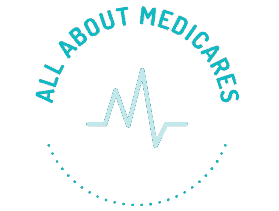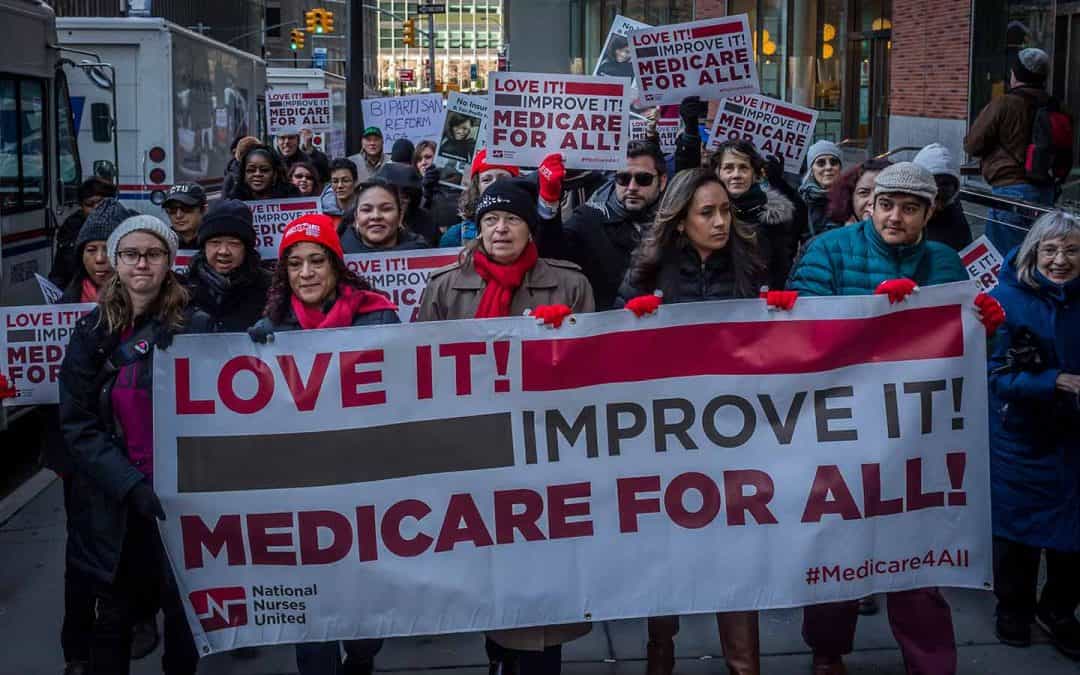Members and supporters of National Nurses United rally for a single-payer national health insurance program in the US. (Sipa USA via AP)
In the waning days of Donald Trump’s presidency, amid a holiday season all but canceled for many by Covid-19, a heated debate unfolded in the left-of-center Twitterverse. Kicked off by a viral clip of comedian Jimmy Dore, who called on Alexandria Ocasio-Cortez and other progressive representatives to withhold their support for Nancy Pelosi’s reelection as House speaker unless she agreed to a floor vote on Pramila Jayapal’s Medicare for All bill, the #ForceTheVote campaign fiercely divided advocates for single-payer health care. While both sides agreed that the gambit had no chance of actually leading to the bill’s passage—it isn’t supported by a majority of Democrats, let alone a majority of Congress—they disagreed on whether it advanced the interests of Medicare for All over the long haul. For proponents, the tactic promised an attention-grabbing spectacle highlighting the urgency of universal health care in the midst of a pandemic and would yield valuable campaign fodder to use against its opponents. But others saw it as little more than a parliamentary stunt that would go unnoticed at best and, at worst, would reinforce the media narrative that frames Medicare for All as an impossible pipe dream.
The Other Side of The Debate
With Pelosi’s reelection in January, the best path forward for Medicare for All remains uncertain. While President Joe Biden staunchly opposes it, the razor-thin Democratic majorities in the House and Senate, as well as Democratic supermajorities in several states, could still present opportunities to advance the cause. Even if #ForceTheVote never materialized as initially conceived, many advocates continue to push for a floor vote as soon as possible. But the unfortunate truth is that the Medicare for All movement lacks the power to make such a vote effective.
More than a year into the coronavirus pandemic, the case for single-payer has never been clearer: Millions of Americans have lost their employer-provided insurance; inadequate access to care has driven up the Covid-19 death count; and hospitals have found themselves underwater without revenue from elective procedures. The pandemic has given us an intimate look at our country’s unequal health outcomes, which Medicare for All would do more to address than any other systemic reform. But moral necessity isn’t enough to win against a $3.8 trillion health care industry that accounts for nearly 20 percent of the US economy and would be fundamentally upended if Medicare for All were to become a reality. With the health care sector already accounting for some of the top political spenders in Washington, there’s virtually no limit to the amount it would expend to topple reforms far more incremental than Medicare for All. Overcoming the ruthless opposition of the health care industry will take a mass movement willing to hit the streets, engage in direct action, and even go on strike to demand single-payer. Until Medicare for All has that kind of movement power behind it, it will easily be defeated by capital—a lesson we’ve learned repeatedly from health care reform battles in the past. And while it has popular support, polling between 40 and 70 percent, the same was true of national health insurance in the 1940s, until a major doctor-and-insurance-backed lobbying effort made the prospect of “socialized medicine” utterly toxic.
From that perspective, the idea of putting politicians on the record regarding Medicare for All has no obvious value. For one thing, similar insight can already be gleaned from a list of the bill’s House and Senate cosponsors. But more important, given the current power disparity between the Medicare for All movement and the colossus it confronts, the unavoidable fact is that most of the elected officials who say they’re in favor of single-payer health care will never be true ride-or-die supporters until we can generate enough force to make the idea of bending to our will more compelling than bending to Big Health Care’s. That’s going to take a lot more than tweets exposing campaign donations to Democrats from pharmaceutical companies. The Democrats could stop taking those tomorrow, and it still wouldn’t change the fact that hospitals are often the largest employer in a given district or that public pensions are deeply invested in companies whose value will shrink in the wake of more equitable public financing.
What we’re confronting, then, is the very heart of wealth and resource distribution in the United States—and floor-vote proponents do a grave disservice to Medicare for All advocates by pretending that this can be solved with a strategy that centers calling out public officials. #ForceTheVote has the relationship between electoral politics and capital precisely backward: Bad politicians aren’t why we have a health care system dominated by moneyed interests; the supremacy of moneyed interests over American health and welfare is why we have bad politicians.
Fight accordingly! Go knock on some doors.
To read the other side of The Debate, read Chase Iron Eyes’s “We Can’t Miss the Next Chance to Force the Vote on Medicare for All.”
This content was originally published here.

I bring content to you in one place.

